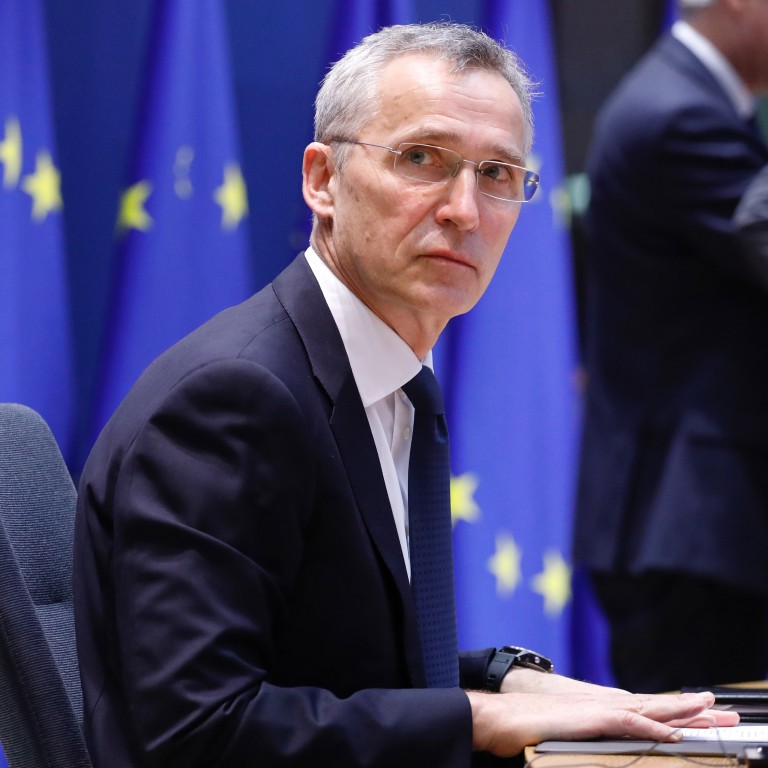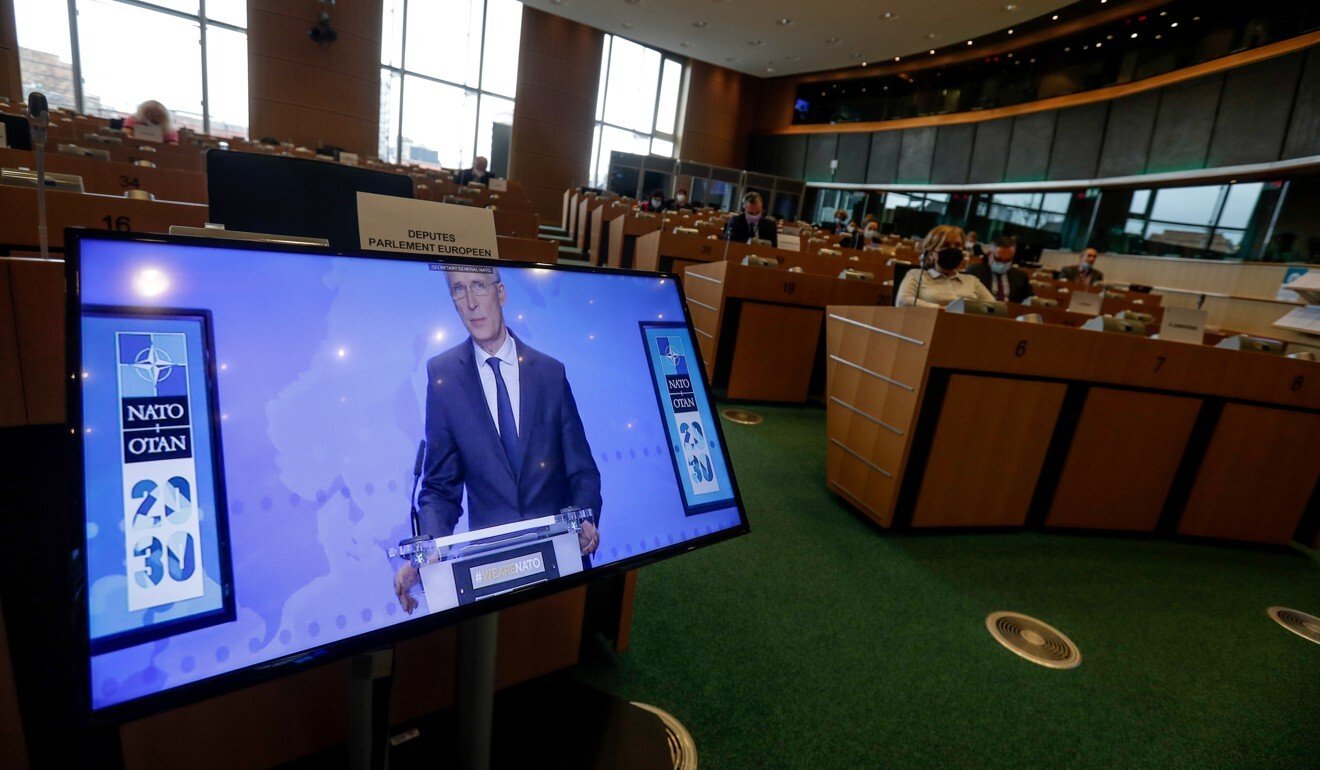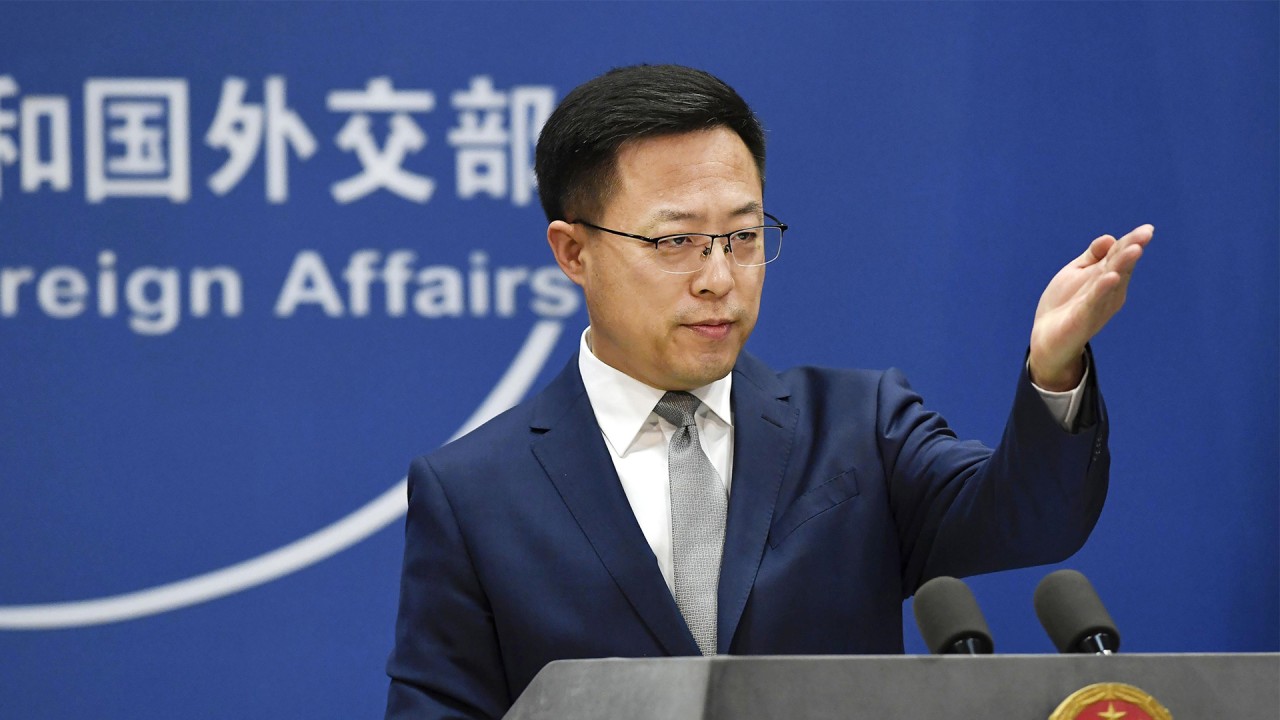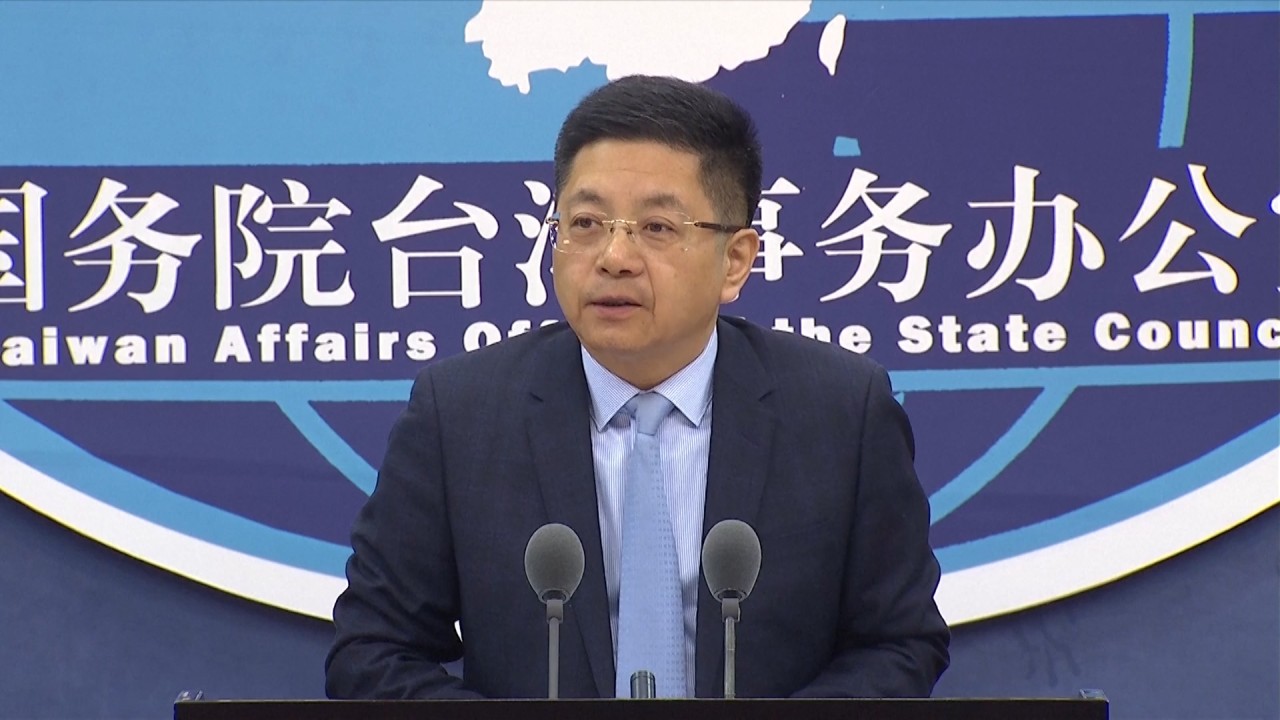
Nato chief urges US, EU to mend alliance to stop China ‘bullying countries all over the world’
- Nato chief describes China’s behaviour as ‘undermining the rule of law’
- European Parliament members ask Stoltenberg questions about China, suggesting anxiety about its threat
Addressing European Parliament committees on security and foreign affairs, Jens Stoltenberg said that Nato should work with partners in the Asia-Pacific region if it is to stop China “bullying countries all over the world”.
“If you’re concerned about the rise of China, the military and economic strength of China, that makes it even more important that we stand together, Europe and North America in Nato,” said Stoltenberg.
He described China’s behaviour as “undermining the rule of law” and he welcomed “President Biden’s clear commitment to rebuilding alliances and strengthening Nato”.

Nato, a military alliance between 30 European and North American countries, endured a tough four years when former US president Donald Trump repeatedly threatened to withdraw from the group, claiming that European members were not paying their way.
Biden last week attended the first virtual meeting of the “Quad”, an informal grouping of Australia, India, Japan and the US, which has been described by some as a “mini Nato”.
California mayor loves rattling cages, putting his city on the map in China
His top aides have touched down in Japan on Monday as part of a tour that will also take place in South Korea before meeting senior Chinese officials in Alaska on Thursday.
But with European officials absent from any of these engagements, Nato chief Stoltenberg was peppered with questions from European Parliament members (MEPs) about China, suggesting anxiety about its threat.
Croatian MEP Tonino Picula urged Nato to combat Russian and Chinese efforts to “exert their influence by increasing economic, political, and cyber advantage in the pandemic”.
“They’re using their vaccine diplomacy to spread their interests, especially in developing countries and in the European Union or neighbourhood. I think it’s … something that both European Union and Nato need to pay particular attention [to],” said Picula, a member of the centre-left Progressive Alliance of Socialists and Democrats.

01:01
China warns US to stay out of Hong Kong affairs ahead of Alaska talks
“Taiwan is deemed by us to be a shining example of democracy. It’s a great economy, and it is great when it comes to developing technologies, we would like Taiwan to have a free and open future. What does this mean for Nato?” she asked.
Stoltenberg credited China’s economic progress and poverty alleviation programme, but suggested that its continued rise was of deep concern.
“At the same time, the rise of China also poses some serious challenges. China is an authoritarian country that doesn’t share our values. They will soon have the biggest economy in the world. They already have the second largest defence budget, they’re investing heavily in new modern military capabilities,” he said.
This hawkish view of China featured heavily in the “Nato 2030” report released last year, designed to be a blueprint for the next decade. While much of the plan focused on Russia, China featured prominently.
China takes toughest line yet on Myanmar crisis as turmoil escalates
“Nato must devote much more time, political resources, and action to the security challenges posed by China – based on an assessment of its national capabilities, economic heft, and the stated ideological goals of its leaders,” the paper read.
In reflection of this, Nato members have in recent months made more maritime trips to the South China Sea, home to a plethora of China-involved territorial disputes.
Already this year, the US conducted multiple freedom of navigation operations in the disputed waters in the region – each time triggering condemnation from Beijing.

01:18
Beijing insists on ‘1992 consensus’ in response to first remarks by Taiwan’s new mainland chief
Germany plans to send a frigate to cross the South China Sea in August, which would be the first German warship to traverse the expanse since 2002.
Canada and Britain have also been active in the region, with Beijing repeatedly voicing its anger at the incursions.

